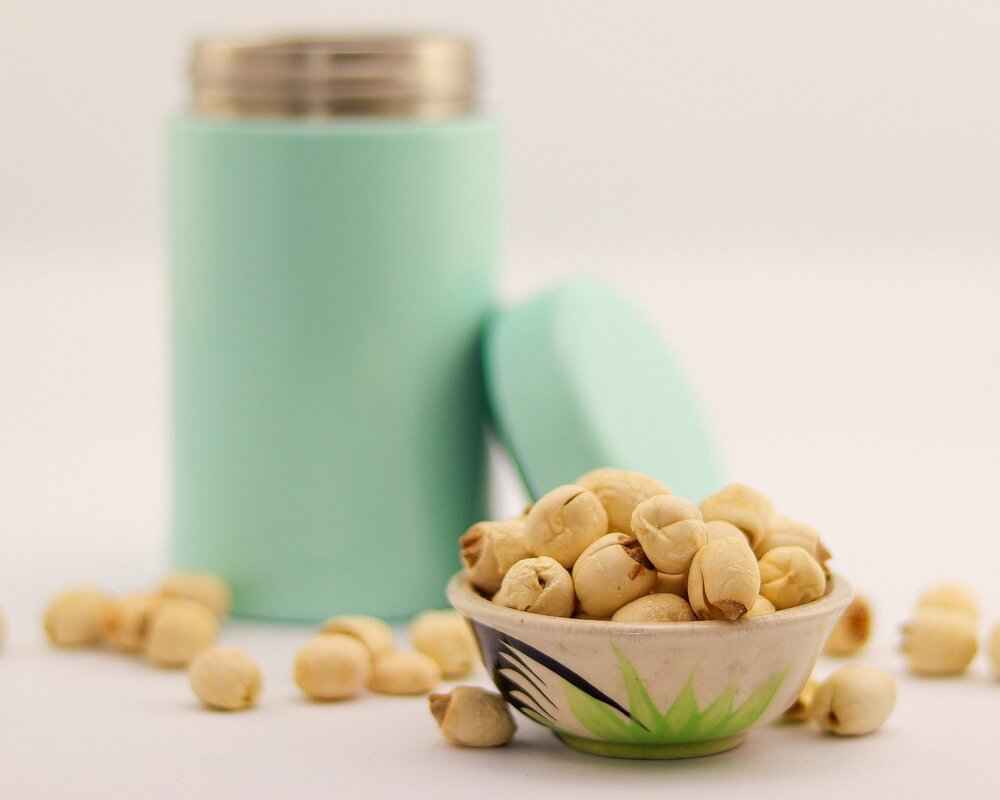Chia Seeds in Water have emerged as a popular health drink, celebrated for their impressive nutritional profile and refreshing qualities. These tiny seeds, when soaked in water, expand and form a gel-like consistency, making them not only hydrating but also a powerhouse of health benefits. This article delves into the myriad advantages of incorporating chia seeds into your daily routine and provides easy preparation methods to enjoy this trendy beverage.
Chia seeds are the small black seeds derived from the Salvia hispanica plant, which is native to Mexico and Guatemala. Rich in essential nutrients, these seeds have been consumed for centuries by ancient civilizations. Their versatility allows them to be added to smoothies, salads, and baked goods, making them a staple in many diets.
Drinking chia seeds in water offers an array of health benefits. Here are a few key advantages:
- Hydration: Chia seeds can absorb up to 12 times their weight in water, promoting hydration.
- Improved Digestion: The high fiber content aids in digestion and helps maintain gut health.
- Nutrient Absorption: Soaking chia seeds enhances the bioavailability of their nutrients.
Preparing chia seeds in water is a straightforward process. Follow these simple steps:
1. Measure 1-2 tablespoons of chia seeds.2. Add them to a glass of water (about 1-2 cups).3. Stir well to prevent clumping.4. Let the mixture sit for 10-15 minutes until it thickens.
This soaking process allows the seeds to expand and form a gel, making them easier to digest and more nutritious.
To enhance the flavor of your chia seed drink, consider adding natural ingredients such as:
- Lemon juice: Provides a refreshing citrus taste.
- Honey: Adds natural sweetness.
- Fresh fruits: Incorporate berries or mango for added flavor and nutrients.
Chia seeds are a nutritional powerhouse, containing:
- Omega-3 fatty acids: Essential for heart health.
- Fiber: Promotes digestive health and satiety.
- Protein: Aids in muscle repair and growth.
- Vitamins and minerals: Including calcium, magnesium, and phosphorus.
While chia seeds are generally safe for most people, some may experience digestive discomfort if consumed in excess. It is advisable to start with small amounts and gradually increase your intake. Additionally, those with specific allergies or gastrointestinal conditions should consult a healthcare professional before adding chia seeds to their diet.
Individuals with known allergies to chia seeds or those suffering from certain gastrointestinal conditions should be cautious. Always consult with a healthcare provider if you have any concerns regarding the inclusion of chia seeds in your diet.
Chia seeds stand out among superfoods due to their unique nutrient profile. Unlike many other seeds and grains, they are high in omega-3 fatty acids, making them a great plant-based source of this essential nutrient. Their versatility and health benefits make them a popular choice for those seeking nutritious dietary options.
Yes, chia seeds can assist in weight management. Their high fiber content promotes feelings of fullness, which can help control appetite and reduce overall caloric intake. Incorporating chia seeds into a balanced diet may support weight loss efforts.

What Are Chia Seeds?
Chia seeds are tiny black seeds derived from the Salvia hispanica plant, which belongs to the mint family. These seeds have gained immense popularity over the years due to their impressive nutritional profile and versatility in various culinary applications. Rich in essential nutrients, chia seeds are often hailed as a superfood, making them a staple in health-conscious diets.
Chia seeds are remarkably small, yet they pack a powerful punch when it comes to health benefits. Originating from Central America, these seeds were a significant part of the diet of ancient civilizations such as the Aztecs and Mayans. They are known for their ability to absorb water, swelling to many times their original size and forming a gel-like substance. This unique property not only enhances their texture in recipes but also contributes to their health benefits.
One of the reasons chia seeds are so highly regarded is their rich nutrient content. They are an excellent source of:
- Omega-3 Fatty Acids: Essential for heart health and brain function.
- Fiber: Aids in digestion and promotes a feeling of fullness.
- Protein: Supports muscle repair and growth.
- Vitamins and Minerals: Including calcium, magnesium, and phosphorus, which are vital for bone health.
Incorporating chia seeds into your diet can lead to numerous health benefits. Some of the most notable include:
- Hydration: When soaked in water, chia seeds can help maintain hydration levels, making them a great addition to your daily water intake.
- Improved Digestion: The high fiber content aids in digestion and can help prevent constipation.
- Weight Management: Their ability to expand in the stomach can promote feelings of fullness, potentially aiding in weight loss efforts.
Adding chia seeds to your meals is simple and versatile. Here are some popular ways to enjoy them:
- Chia Pudding: Mix chia seeds with milk or a milk alternative, sweeten with honey or maple syrup, and let it sit overnight for a delicious breakfast.
- Smoothies: Blend chia seeds into your favorite smoothies for added nutrition.
- Baking: Incorporate chia seeds into bread, muffins, or energy bars for an extra boost.
While chia seeds are safe for most people, it is essential to consume them in moderation. Due to their high fiber content, excessive intake can lead to digestive issues, such as bloating or gas. It’s advisable to start with a small amount and gradually increase your intake.
Individuals with certain allergies, particularly to plants in the mint family, should consult a healthcare professional before adding chia seeds to their diet. Additionally, those with gastrointestinal conditions should also seek advice to ensure they can safely enjoy these nutritious seeds.
In summary, chia seeds are not only a nutritional powerhouse but also a versatile ingredient that can enhance various dishes. Their health benefits, combined with ease of incorporation into your diet, make them a worthy addition to any health-conscious lifestyle.

Why Is Drinking Chia Seeds in Water Beneficial?
Drinking chia seeds in water has become a popular health trend, and for good reason. This simple yet effective beverage offers a plethora of health benefits that can enhance your overall well-being. In this section, we will explore why incorporating chia seeds in water into your daily routine is a wise choice.
- Hydration: Chia seeds can absorb up to 12 times their weight in water, making them an excellent source of hydration. When soaked in water, they form a gel-like substance that helps to keep you hydrated for longer periods.
- Improved Digestion: The high fiber content in chia seeds promotes healthy digestion. When consumed in water, the seeds swell and expand, aiding in bowel regularity and preventing constipation.
- Enhanced Nutrient Absorption: Soaking chia seeds in water allows your body to absorb their nutrients more effectively. This includes essential omega-3 fatty acids, proteins, and various vitamins and minerals that contribute to overall health.
- Weight Management: Chia seeds can help you feel full for longer due to their high fiber content. This can assist in controlling your appetite and reducing overall calorie intake, making them a great addition to a weight management plan.
- Blood Sugar Control: Studies suggest that chia seeds may help stabilize blood sugar levels, making them a beneficial option for those managing diabetes or looking to prevent blood sugar spikes.
When chia seeds are soaked in water, they undergo a remarkable transformation. The seeds absorb liquid and expand, creating a gel-like consistency. This not only makes them easier to consume but also helps to maintain hydration levels in the body. Staying hydrated is crucial for various bodily functions, including temperature regulation, joint lubrication, and nutrient transport.
Yes, they can! The soluble fiber in chia seeds plays a significant role in digestive health. When consumed, the gel-like substance formed by soaked chia seeds can help to move food through the digestive tract smoothly. This promotes regular bowel movements and can alleviate issues such as bloating and constipation.
Soaking chia seeds not only makes them easier to digest but also enhances the bioavailability of their nutrients. Key nutrients found in chia seeds include:
- Omega-3 Fatty Acids: Essential for heart health and cognitive function.
- Protein: Important for muscle repair and growth.
- Calcium: Vital for bone health.
- Magnesium: Supports muscle and nerve function.
- Antioxidants: Help protect the body from oxidative stress.
While chia seeds are generally safe for most people, it’s important to consume them in moderation. Some individuals may experience digestive discomfort if they consume too many seeds without adequate hydration. It’s advisable to start with a small amount and gradually increase your intake to allow your body to adjust.
Chia seeds in water can be beneficial for a wide range of individuals, including those looking to improve their hydration, enhance digestive health, or manage their weight. However, individuals with specific allergies or gastrointestinal conditions should consult a healthcare professional before incorporating chia seeds into their diet.
Incorporating chia seeds into your daily routine by consuming them in water is a simple yet effective way to boost your health. With their numerous benefits, they can easily become a staple in your diet.
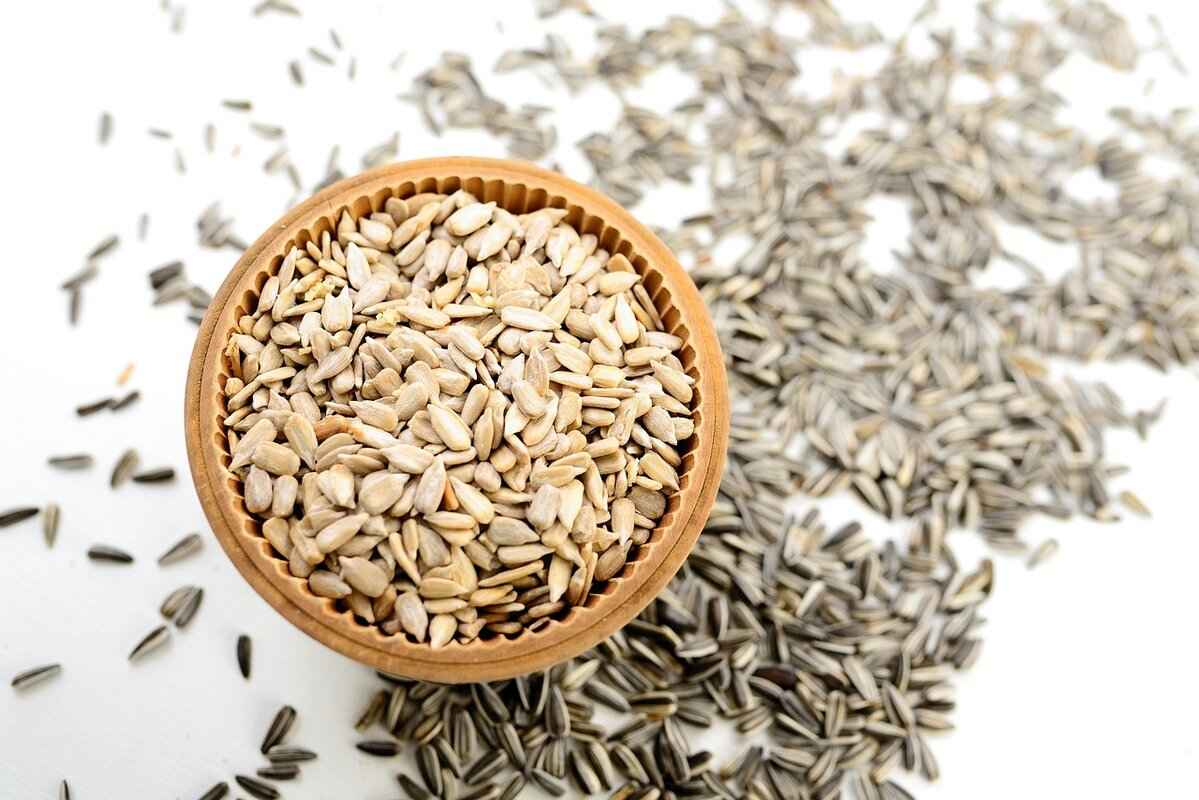
How to Prepare Chia Seeds in Water?
Preparing chia seeds in water is not only simple but also a quick process that can elevate your health regimen. Chia seeds, known for their remarkable nutritional benefits, transform into a gel-like consistency when soaked in water, making them easier to digest and enhancing their health advantages. Below, we explore the step-by-step process for preparing chia seeds in water, ensuring you get the most out of this superfood.
- Step 1: Measure the Chia Seeds
Start by measuring the desired amount of chia seeds. A common ratio is 1 tablespoon of chia seeds to 1 cup of water. Adjust according to your preference and serving size. - Step 2: Combine with Water
In a container, combine the measured chia seeds with water. This can be done in a glass, jar, or any suitable container. Stir the mixture gently to ensure that the seeds are evenly distributed in the water. - Step 3: Let It Soak
Allow the mixture to sit for about 10 to 15 minutes. During this time, the chia seeds will absorb the water, expanding and forming a gel-like texture. This soaking process is crucial as it enhances the seeds’ digestibility and nutrient absorption. - Step 4: Stir Again
After the soaking period, give the mixture another stir to break up any clumps that may have formed. This ensures a smooth consistency, making it more enjoyable to consume. - Step 5: Enjoy Your Chia Seed Drink
Your chia seed drink is now ready! You can consume it as is or enhance the flavor with natural additives.
Flavoring Your Chia Seed Drink
To make your chia seed drink even more enjoyable, consider adding flavorful ingredients. Popular options include:
- Lemon Juice: Adds a refreshing zing.
- Honey or Maple Syrup: For a touch of sweetness.
- Fresh Fruits: Such as berries, mango, or banana for added flavor and nutrients.
Experiment with different combinations to find your favorite flavor profile. You can also use flavored water or herbal teas as a base for your chia seed preparation, expanding your options even further.
Health Benefits of Chia Seeds in Water
Incorporating chia seeds into your water not only enhances hydration but also provides a host of health benefits. The gel-like consistency created through soaking helps to slow down digestion, promoting a feeling of fullness and aiding in weight management. Additionally, chia seeds are rich in omega-3 fatty acids, fiber, and protein, contributing to overall health and wellness.
By preparing chia seeds in water, you are not only making a nutritious drink but also embracing a trend that aligns with a healthy lifestyle. This preparation method is a fantastic way to incorporate more superfoods into your diet, making it easier to achieve your health goals.
In summary, preparing chia seeds in water is a straightforward process that can significantly benefit your health. With just a few simple steps and the option to customize flavors, you can enjoy a refreshing drink that nourishes your body and satisfies your taste buds.
Step-by-Step Preparation Guide
Preparing chia seeds in water is a straightforward process that can easily be integrated into your daily routine. By following these simple steps, you can enjoy the numerous health benefits that chia seeds offer. Here’s how to do it:
- Measure the Chia Seeds: Start by measuring out 1-2 tablespoons of chia seeds. This amount is sufficient for a single serving and provides a good balance of nutrients.
- Choose Your Liquid: Select the liquid you want to use. While plain water is a popular choice, you can also use coconut water, almond milk, or any other beverage of your choice to enhance flavor.
- Soak the Seeds: Add the measured chia seeds to your chosen liquid. The typical ratio is 1 tablespoon of chia seeds to 1 cup of water. This ensures that the seeds have enough liquid to absorb.
- Stir Well: After adding the seeds to the liquid, stir the mixture thoroughly. This helps to prevent clumping and ensures that the seeds are evenly distributed throughout the liquid.
- Let it Sit: Allow the mixture to sit for about 10-15 minutes. During this time, the chia seeds will absorb the liquid and expand, creating a gel-like consistency. You can stir it occasionally to maintain an even texture.
- Enjoy Your Drink: Once the chia seeds have absorbed the liquid and formed a gel, your drink is ready. You can consume it as is or add flavorings like honey, lemon juice, or fresh fruit for added taste.
By following these steps, you’ll create a nutritious drink that not only hydrates but also provides essential nutrients. Chia seeds are rich in omega-3 fatty acids, fiber, and protein, making them a fantastic addition to your diet.
For those looking to enhance their chia seed drink further, consider experimenting with different flavor combinations. Adding fresh fruits like berries or mango can elevate the taste while also providing additional vitamins and antioxidants. You can also mix in spices like cinnamon or vanilla for a unique twist.
It’s important to note that while chia seeds are generally safe for most people, they should be consumed in moderation. If you are new to chia seeds, start with smaller amounts to see how your body reacts. Gradually increase your intake as you become accustomed to their high fiber content.
In conclusion, preparing chia seeds in water is a simple yet effective way to incorporate these powerful seeds into your diet. With just a few easy steps, you can create a delicious and nutritious drink that supports your health and wellness goals.
Flavoring Your Chia Seed Drink
Chia seed drinks are not only nutritious but also offer a blank canvas for flavor enhancement. By incorporating natural ingredients, you can transform your chia seed beverage into a delicious and refreshing treat. Here are some popular and healthy ways to flavor your chia seed drink:
- Lemon Juice: Adding fresh lemon juice not only enhances the taste but also provides a boost of vitamin C. The tangy flavor complements the mild taste of chia seeds, making it a perfect choice for a refreshing drink.
- Honey: For those who prefer a touch of sweetness, honey is a natural sweetener that pairs well with chia seeds. It adds a rich flavor and has its own health benefits, including antibacterial properties.
- Fresh Fruits: Incorporating fresh fruits like berries, mangoes, or oranges can elevate your chia seed drink. These fruits not only add vibrant colors but also infuse the drink with essential vitamins and antioxidants.
- Coconut Water: For a tropical twist, consider using coconut water as a base. It hydrates and adds a hint of sweetness, making your chia drink even more refreshing.
- Herbs and Spices: Experimenting with herbs like mint or spices such as cinnamon can enhance the flavor profile. These additions can provide a unique taste while also offering health benefits.
To create the perfect chia seed drink, start by soaking your chia seeds in water for about 10-15 minutes until they swell and form a gel-like consistency. Once prepared, mix in your chosen flavoring ingredients. Here’s a simple recipe to get you started:
Ingredients:- 2 tablespoons chia seeds- 1 cup water- 1 tablespoon lemon juice- 1 tablespoon honey (or to taste)- Fresh fruits (optional)Instructions:1. In a glass, combine chia seeds and water.2. Stir well and let it sit for 10-15 minutes.3. Add lemon juice and honey, mixing thoroughly.4. Top with fresh fruits if desired.5. Enjoy your nutritious chia seed drink!
Feel free to adjust the sweetness and flavors according to your preference. Remember, the key to a great chia seed drink is to balance the flavors while keeping it healthy. The versatility of chia seeds allows you to get creative with your beverages, making each drink a new experience.
By enhancing your chia seed drink with natural ingredients, you not only improve the taste but also maximize its nutritional benefits. This makes it a perfect addition to your daily routine, whether as a refreshing breakfast beverage or a mid-afternoon snack.
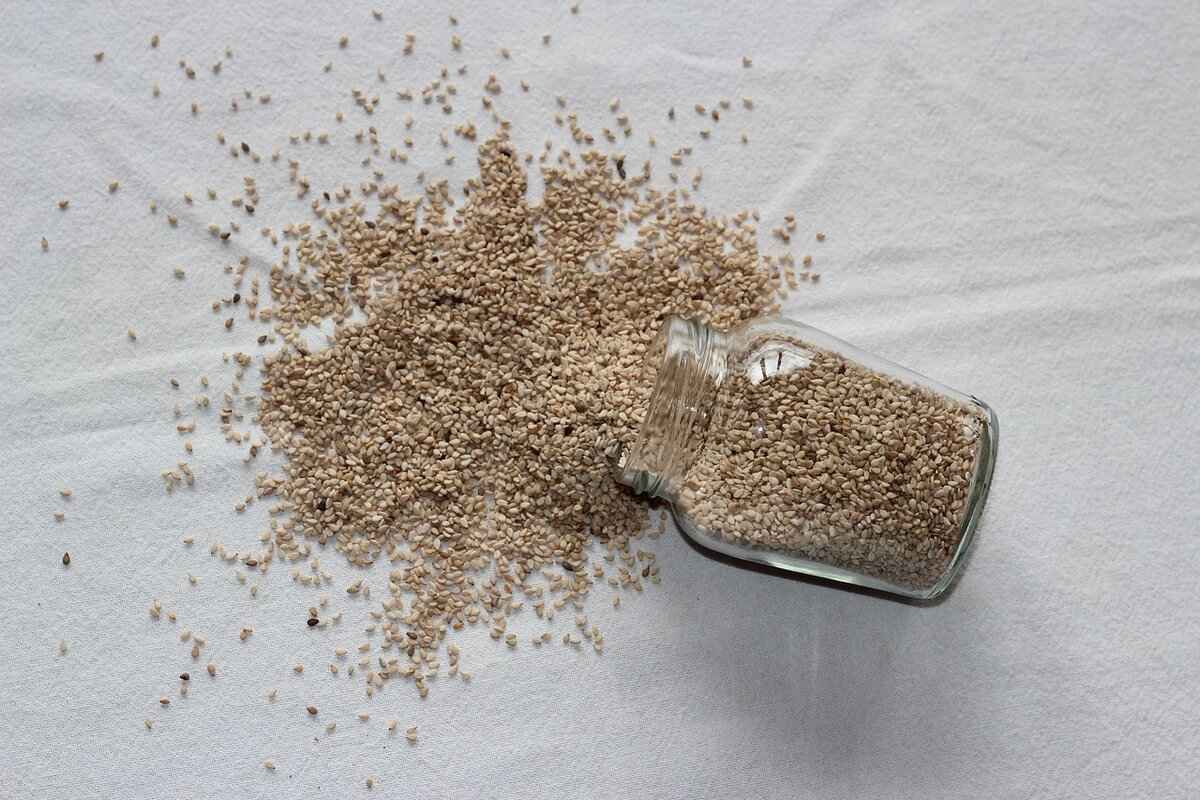
What Nutrients Are Found in Chia Seeds?
Chia seeds, derived from the Salvia hispanica plant, have become a popular health food due to their impressive nutritional profile. These tiny seeds are not only versatile but also provide a multitude of health benefits, making them a staple in many diets. In this section, we will explore the various nutrients found in chia seeds and their contributions to overall health and wellness.
- Omega-3 Fatty Acids: Chia seeds are an excellent source of alpha-linolenic acid (ALA), a type of omega-3 fatty acid. These healthy fats are known for their anti-inflammatory properties and are essential for heart health. Regular consumption can help lower cholesterol levels and reduce the risk of heart disease.
- Dietary Fiber: One of the standout features of chia seeds is their high fiber content. With approximately 11 grams of fiber per ounce, they can support digestive health by promoting regularity and preventing constipation. Fiber also aids in maintaining a healthy weight by enhancing feelings of fullness.
- Protein: Chia seeds are a great source of plant-based protein, containing around 4 grams per ounce. This makes them an excellent option for vegetarians and vegans looking to increase their protein intake. Protein is vital for muscle repair, immune function, and overall body maintenance.
- Vitamins and Minerals: Chia seeds are rich in essential vitamins and minerals, including calcium, magnesium, phosphorus, and manganese. These nutrients are crucial for bone health, energy production, and metabolic functions.
- Antioxidants: Chia seeds are packed with antioxidants, which help combat oxidative stress in the body. These compounds can protect the cells from damage caused by free radicals, contributing to overall health and longevity.
The combination of these nutrients makes chia seeds a powerhouse of health benefits. They can easily be incorporated into various meals, whether sprinkled on salads, blended into smoothies, or used as a thickening agent in puddings.
Moreover, the unique ability of chia seeds to absorb water and form a gel-like substance is particularly beneficial. This property not only enhances hydration but also helps in the slow release of energy, making them an ideal snack for athletes and active individuals.
In summary, chia seeds are a nutrient-dense food that offers a wide range of health benefits. Their high content of omega-3 fatty acids, fiber, protein, vitamins, and minerals makes them a valuable addition to any diet. By incorporating chia seeds into your daily routine, you can take a significant step towards improving your overall health and wellness.

Are There Any Side Effects of Chia Seeds?
Chia seeds have surged in popularity as a health food, known for their impressive nutritional profile and versatility. However, like any food, they can have side effects, especially when consumed in large quantities. Understanding these potential issues can help you enjoy chia seeds safely.
While chia seeds are generally regarded as safe and beneficial, some individuals may experience digestive issues if they consume them in excess. This is particularly true for those who are not accustomed to high-fiber diets. Chia seeds are incredibly rich in fiber, with about 11 grams per ounce, which can lead to discomfort if introduced too quickly into your diet.
- Gastrointestinal Distress: Some people may experience bloating, gas, or cramping after eating chia seeds, particularly if they consume large amounts at once. This is due to the seeds’ high fiber content, which can be difficult for the digestive system to handle without adequate hydration.
- Dehydration Risk: Chia seeds absorb up to 10-12 times their weight in water. If consumed without sufficient liquid, they can expand in the digestive tract, potentially leading to a blockage, especially in individuals with existing gastrointestinal issues.
- Allergic Reactions: Though rare, some individuals may be allergic to chia seeds. Symptoms can include itching, hives, or difficulty breathing. If you suspect an allergy, it’s essential to seek medical advice.
To mitigate these potential side effects, it is crucial to start with small amounts of chia seeds and gradually increase your intake. For most people, beginning with a teaspoon or tablespoon and monitoring how your body reacts is a wise approach. This gradual increase allows your digestive system to adjust to the added fiber.
Moreover, it’s important to always soak chia seeds before consumption. Soaking them in water or another liquid not only enhances their nutritional benefits but also makes them easier to digest. When soaked, the seeds swell and form a gel-like consistency, which can help ease any digestive discomfort.
While chia seeds can be a healthy addition to most diets, certain individuals should exercise caution. Those with pre-existing gastrointestinal conditions, such as irritable bowel syndrome (IBS) or inflammatory bowel disease (IBD), may find that chia seeds exacerbate their symptoms. It is always advisable to consult a healthcare professional before making significant dietary changes.
Additionally, individuals taking medications that affect blood sugar levels or blood pressure should consult their doctor before adding chia seeds to their diet, as these seeds can have an impact on these conditions.
In summary, while chia seeds offer numerous health benefits, it is essential to consume them mindfully. Starting with small amounts, ensuring adequate hydration, and soaking the seeds can help prevent any adverse effects. By doing so, you can safely enjoy the nutritional advantages that chia seeds have to offer.
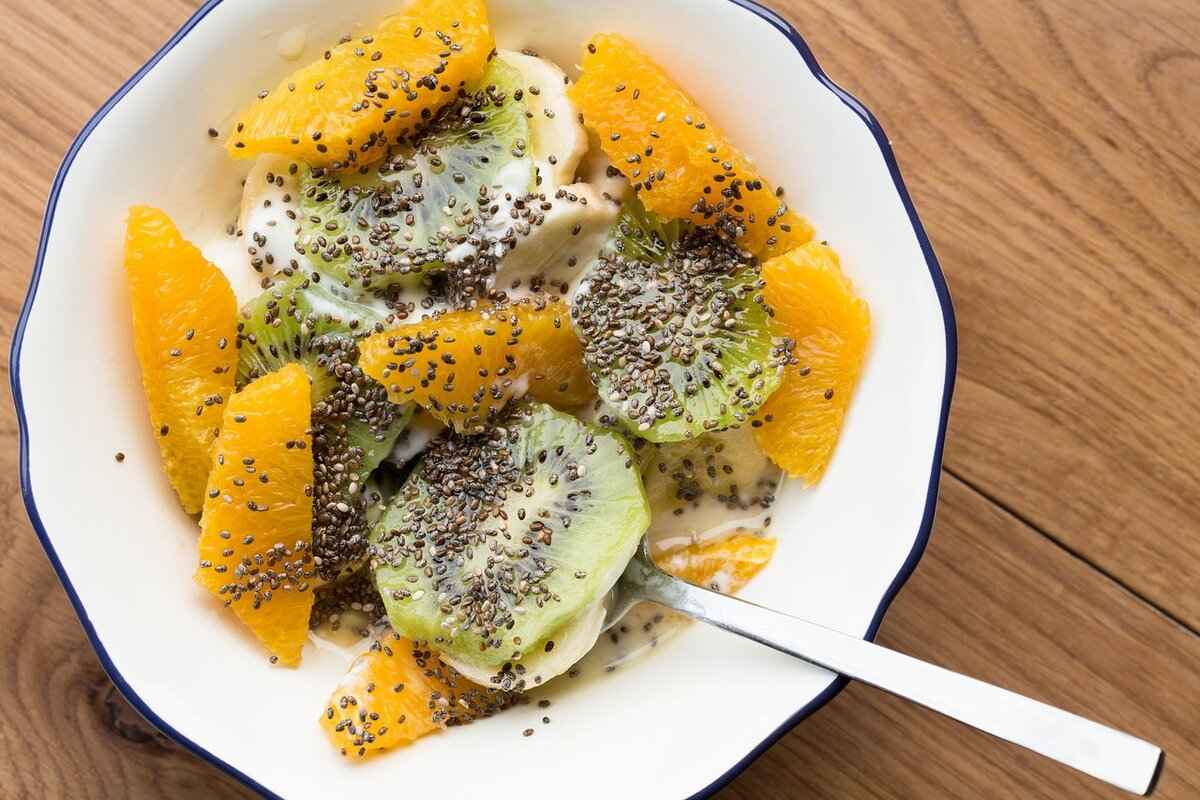
Who Should Avoid Chia Seeds?
Chia seeds have gained immense popularity due to their numerous health benefits and versatility in various diets. However, while they are generally safe for most people, there are certain individuals who should exercise caution. Understanding who should avoid chia seeds is essential to ensure a healthy and balanced diet.
Individuals with Allergies: Some people may have allergies to chia seeds, which can lead to adverse reactions. Symptoms can range from mild to severe, including itching, swelling, and digestive disturbances. If you have a known allergy to other seeds or plants in the mint family, such as basil or flaxseed, it is advisable to consult a healthcare professional before adding chia seeds to your diet.
People with Gastrointestinal Disorders: Chia seeds are high in fiber, which is beneficial for digestion. However, for individuals with certain gastrointestinal conditions, such as irritable bowel syndrome (IBS) Those on Blood Thinners: Chia seeds contain omega-3 fatty acids, which can have a blood-thinning effect. If you are taking anticoagulant medications, incorporating chia seeds into your diet may increase the risk of bleeding. Always consult with your doctor to discuss any potential interactions with your medications. Individuals with Low Blood Pressure: Chia seeds can help lower blood pressure due to their high fiber content and omega-3 fatty acids. For those already experiencing low blood pressure, consuming chia seeds may lead to further drops in blood pressure, causing dizziness or fainting. It is advisable to monitor your blood pressure and consult a healthcare professional if you have concerns. Pregnant and Nursing Women: While chia seeds are generally safe, pregnant and nursing women should approach them with caution. Due to the high fiber content, excessive consumption may lead to digestive discomfort. It is best to consult a healthcare provider for personalized advice on including chia seeds in your diet during pregnancy or breastfeeding. Children: While chia seeds can be a nutritious addition to a child’s diet, it is essential to introduce them gradually. Young children may be more susceptible to choking hazards, especially if the seeds are not adequately soaked. Always supervise young children when consuming new foods and consult a pediatrician for guidance. In summary, while chia seeds offer numerous health benefits, certain individuals should be cautious or avoid them altogether. Consulting with a healthcare professional is crucial for those with allergies, gastrointestinal disorders, or specific health conditions. By understanding your body’s needs and limitations, you can make informed dietary choices that promote overall health and well-being.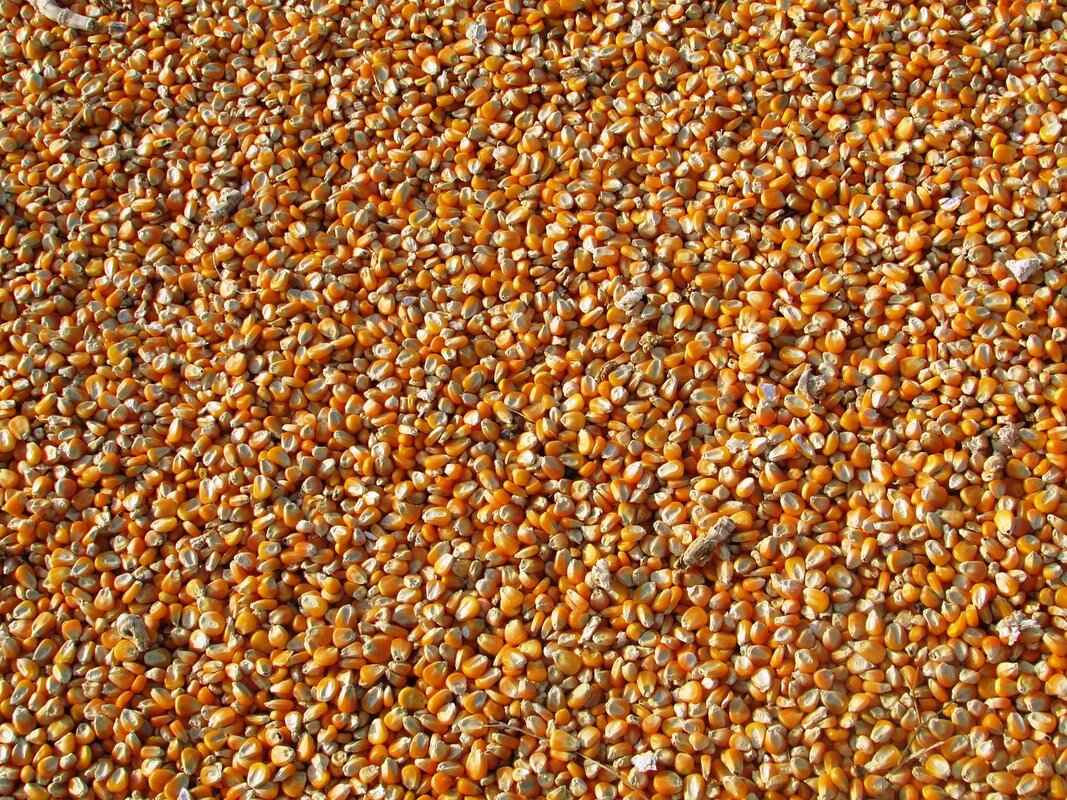
How Do Chia Seeds Compare to Other Superfoods?
Chia seeds have gained significant popularity in recent years, often hailed as a superfood due to their remarkable nutrient profile. But how do they truly compare to other superfoods? This article delves into the unique characteristics of chia seeds, highlighting their health benefits and how they stack up against other nutrient-rich options.
Chia seeds, derived from the Salvia hispanica plant, are incredibly nutrient-dense. They are a rich source of omega-3 fatty acids, fiber, protein, and essential minerals such as calcium and magnesium. Unlike many other superfoods, they are also versatile, easily incorporated into various diets and recipes. Their ability to absorb water and form a gel-like consistency makes them unique among seeds and grains.
Both chia seeds and flaxseeds are known for their high omega-3 content. However, chia seeds provide a more balanced nutritional profile, offering higher fiber content and a longer shelf life due to their antioxidant properties. While flaxseeds require grinding to unlock their nutritional benefits, chia seeds can be consumed whole, making them more convenient for many.
Quinoa is often celebrated for its complete protein profile, containing all nine essential amino acids. In contrast, chia seeds are lower in protein but are an excellent source of dietary fiber, which aids in digestion and promotes a feeling of fullness. When it comes to cooking versatility, quinoa is primarily used as a grain substitute, while chia seeds can be added to smoothies, baked goods, and beverages.
Acai berries are renowned for their high antioxidant content, which helps combat oxidative stress in the body. While they offer unique health benefits, chia seeds provide a broader range of nutrients, including healthy fats and fiber. The choice between the two may depend on individual dietary needs and preferences, as both can be beneficial when included in a balanced diet.
Spirulina is a blue-green algae known for its high protein content and vitamin B12. While it excels in certain nutrients, chia seeds offer a more comprehensive nutrient profile, especially in terms of fiber and healthy fats. Additionally, chia seeds are easier to incorporate into everyday meals compared to spirulina, which may require specific recipes to mask its strong flavor.
Superfood powders like maca and beetroot powder are popular for their concentrated nutrients. However, chia seeds provide a whole-food source of nutrition that is minimally processed. They offer a balance of macronutrients and micronutrients, making them a great addition to any diet. Furthermore, they can be easily mixed into smoothies or oatmeal, enhancing both flavor and nutrition.
Health-conscious individuals often gravitate towards chia seeds due to their numerous health benefits. They are known to support heart health, improve digestion, and aid in weight management due to their high fiber content. Furthermore, chia seeds are gluten-free and suitable for various dietary restrictions, making them an inclusive option for many.
In summary, while chia seeds stand out for their unique nutrient profile and health benefits, they can complement other superfoods rather than replace them. Their versatility and ease of incorporation into daily meals make them a valuable addition to a nutritious diet.

Can Chia Seeds Help with Weight Management?
Chia seeds have gained popularity in recent years as a superfood, especially among those looking to manage their weight. These tiny, nutrient-dense seeds are not just a trendy addition to smoothies and salads; they offer several health benefits that can support weight management efforts. But how exactly do they help?
The effectiveness of chia seeds in weight management can be attributed to their high fiber content. A single ounce (about 28 grams) of chia seeds contains approximately 11 grams of fiber, which is about 44% of the recommended daily intake for adults. This fiber plays a crucial role in promoting feelings of fullness and satiety after meals.
When chia seeds are consumed, they absorb water and swell to many times their original size, forming a gel-like substance. This gel formation slows down the digestive process, which can help maintain a feeling of fullness for a longer period. As a result, individuals may find it easier to resist the urge to snack between meals, ultimately aiding in calorie control.
Incorporating chia seeds into your diet may also help regulate appetite. The fiber in chia seeds can slow gastric emptying, which means that food stays in the stomach longer. This delay can lead to reduced hunger pangs and fewer cravings, making it easier to stick to a healthy eating plan.
Adding chia seeds to your meals is simple and versatile. Here are a few easy ways to include them in your diet:
- Chia Pudding: Soak chia seeds in almond milk or yogurt overnight for a delicious breakfast.
- Smoothies: Blend chia seeds into your favorite smoothie for added nutrition.
- Salads: Sprinkle chia seeds on salads for a crunchy texture.
- Baking: Add chia seeds to baked goods like muffins or bread for extra fiber.
While chia seeds are generally safe for most people, it is important to consume them in moderation. Overconsumption can lead to digestive issues such as bloating or gas due to their high fiber content. It’s advisable to start with small amounts and gradually increase your intake to assess your body’s response.
Chia seeds can be beneficial for anyone looking to enhance their diet, especially those aiming for weight management. However, individuals with specific health conditions, such as gastrointestinal disorders, should consult a healthcare professional before making significant changes to their diet.
In conclusion, chia seeds can be a valuable addition to a weight management strategy due to their high fiber content, ability to promote satiety, and ease of incorporation into various meals. By understanding how these tiny seeds work and utilizing them effectively, individuals can enhance their dietary efforts and support their overall health goals.
Frequently Asked Questions
- How do I prepare chia seeds in water?
Preparing chia seeds in water is super easy! Just measure about 1-2 tablespoons of chia seeds and mix them with a cup of water. Stir well, let them soak for about 10-15 minutes, and watch them transform into a gel-like consistency. It’s like magic!
- Can I add flavors to my chia seed drink?
Absolutely! You can jazz up your chia seed drink by adding lemon juice, honey, or even fresh fruits. Think of it as your canvas; you can create a refreshing masterpiece that suits your taste buds!
- Are there any side effects of consuming chia seeds?
While chia seeds are generally safe, some people might experience digestive issues if they go overboard. It’s best to start with a small amount and gradually increase it to avoid any tummy troubles.
- Who should avoid chia seeds?
If you have specific allergies or gastrointestinal conditions, it’s wise to check with a healthcare professional before diving into chia seeds. Better safe than sorry, right?
- Do chia seeds help with weight management?
Yes! Thanks to their high fiber content, chia seeds can help you feel fuller for longer, making it easier to manage your appetite and stick to your weight goals. They’re like little allies in your health journey!


